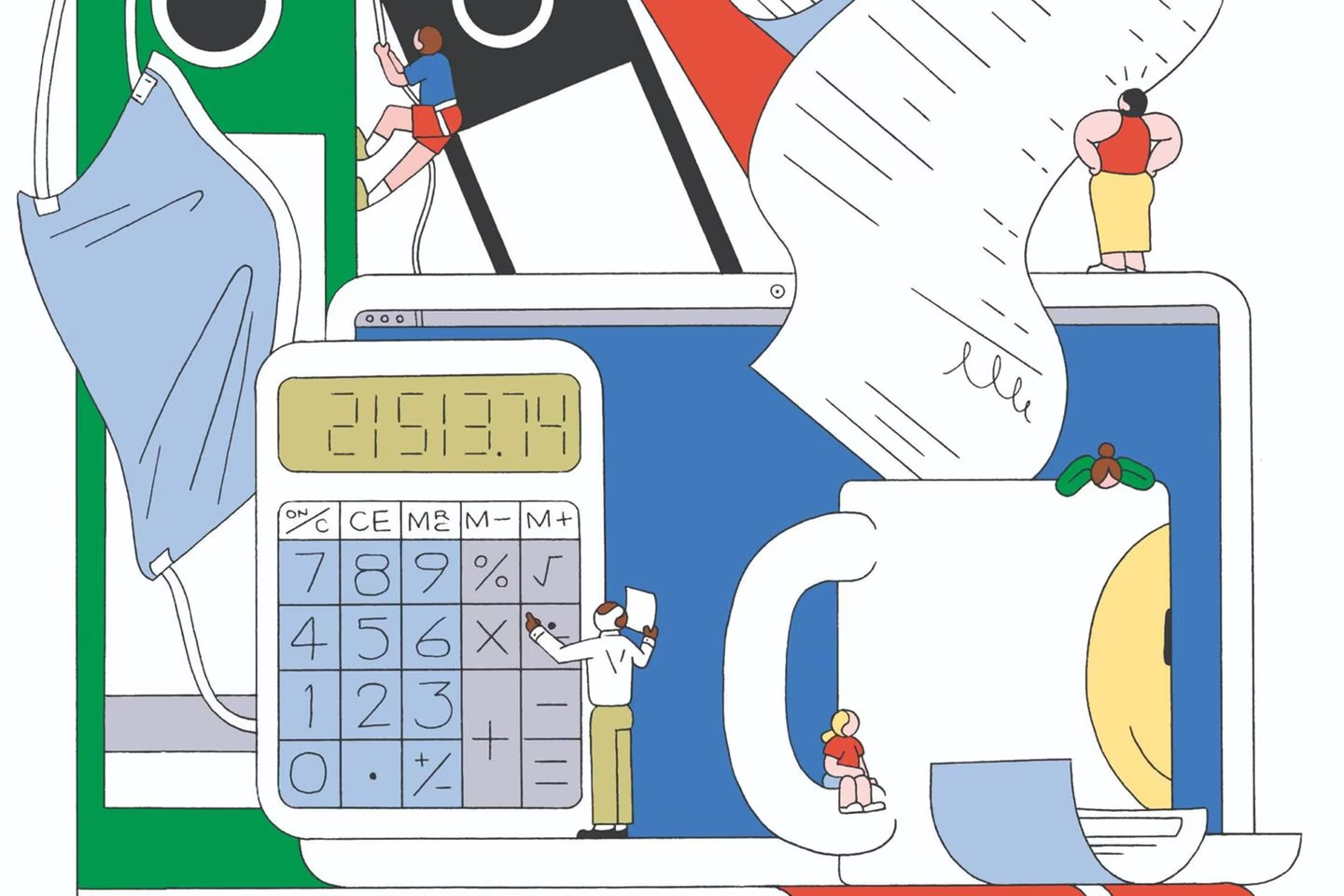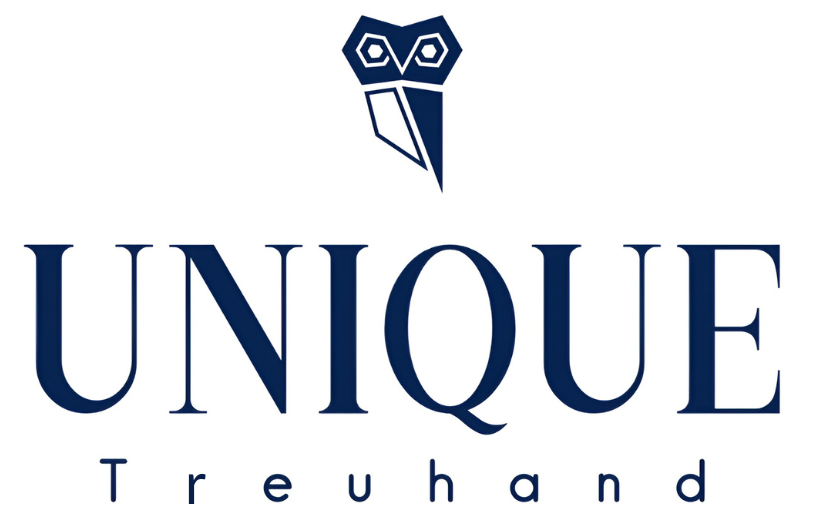Tips and tricks for your tax return

The 2025 Swiss tax return is due again. Many taxpayers are wondering what exactly they need to declare this year. In our article, we provide helpful tax tips and tricks to consider when preparing your tax return – especially if you plan to have it completed for you and want to make the most of your deductions.
1. Kosten für den Weg zur Arbeit
Commuting costs can be deducted from your taxes if you use public transport, a car, or a bicycle. There are, however, some details to keep in mind – such as how often you commute and which means of transport you use. If you have your tax return prepared for you, make sure the claimed amount stays within the allowed limit (maximum of 3000 Swiss francs).
2. Zusatzkosten und Berufsauslagen
All professional expenses can be claimed as tax deductions. Examples of work-related expenses include work clothing, means of transport such as train tickets, or electricity used while working from home. Such costs can be deducted for tax purposes.
Up to a maximum amount of 4000 Swiss francs, professional expenses can also be deducted without special proof. It is generally assumed that 3 % of the direct federal tax on the net salary applies. Additional professional expenses exceeding the flat-rate amount are also deductible – provided that you can provide supporting documentation.
3. Pensionskasse Säule 3a / Vorsorgekosten
The Swiss tax system is highly competitive, with the 3a pillar playing a particularly important role. Contributions to the 3a pillar can be deducted from income tax up to a fixed maximum amount. This limit is around CHF 7,056 for employees and approximately CHF 35,280 for self-employed individuals without a pension fund.
Tip: The maximum amount should ideally be paid into the 3a pillar every year. Such contributions offer a double benefit – they help build greater retirement savings while also reducing your overall tax burden.
If you would like to learn more about the deductions and rules of the 3a pillar, your Swiss tax advisor will be happy to explain how these contributions can help you save money on your tax return.
4. Pensionskasse Säule 2 / Vorsorgekosten
The second pillar of the Swiss pension system consists of contributions that can be claimed as tax deductions – especially if you have your tax return prepared and all relevant payments are accurately recorded.
Voluntary contributions to close pension gaps can also be deducted from taxes. Through installment payment plans, you can save taxes – and if you have your tax return completed professionally, you’ll benefit from an accurate calculation of deductible amounts.
The amount of allowed contributions depends on how much has been paid in over several years. New maximum limits only apply when opening new accounts – not to existing ones. The maximum amount can be found in your pension fund statement. Alternatively, your tax advisor or the competent tax authority can provide more information.
5. Prämien der Unfallversicherung, Lebensversicherung und Krankenversicherung
Premiums for life insurance, accident insurance and health insurance can be claimed as tax deductions. Health insurance premiums are indirectly deducted through a flat-rate allowance.
The maximum deductible amounts vary depending on marital status, tax situation and place of residence. Deducting supplementary insurance premiums or directly deducting the basic health insurance premium is not permitted.
Contributions paid directly to accident insurance are considered pension-related expenses and can be deducted as such. Be sure to observe the applicable limits – only unused portions remain deductible.
Premiums paid for life insurance (pillar 3b) can be indirectly deducted via the flat-rate allowance. Again, the allowable maximum amounts must not be exceeded.
6. Ausbildungs- und Weiterbildungskosten
Education and training expenses can be claimed as tax deductions. The maximum deductible amount for further education is CHF 12,000. However, note that basic education costs, such as expenses for a first degree or apprenticeship, are not refundable. If you have your tax return prepared, you can be sure that your training expenses are correctly taken into account and all applicable deduction limits are observed.
7. Auswärtige Verpflegung
Meal expenses incurred for professional reasons can also be claimed as tax deductions. Generally, only meal costs directly related to work are deductible. If meals could have been taken at home, external meal expenses cannot be deducted. The distance between the workplace and home plays a key role in this context.
Main meals are calculated as flat-rate amounts of CHF 15 each, or as subsidized meals provided by the employer at CHF 7.50. Meal expenses are only recognized if all requirements are met; otherwise, the tax office will reject the deduction. Therefore, before submitting your tax return, it is advisable to have a tax professional review it.
8. Heilungskosten, Unfallkosten und Krankheitskosten
Medical expenses that you pay out of your own pocket can be claimed as tax deductions.
However, these expenses must exceed a certain percentage of your net income (for example 5%) to qualify for deduction.
To be deductible, healthcare costs must be medically documented. Eligible expenses include recognized naturopathic treatments, medically necessary transportation, and prescription glasses.
Your tax advisor can inform you about the current maximum deductible amounts for medical or healing expenses in Switzerland.
9. Kreditzinsen und Schulden
Interest payments on bank loans can be deducted from income tax. These deductible interest payments may arise from private loans, mortgages, or other types of credit.
However, only the interest itself is deductible – not the repayment of the loan principal. If a car is financed through a loan, the related interest can be claimed as a deduction. A leasing agreement, on the other hand, is not tax-deductible and cannot be submitted.
10. Zweiverdienerabzug – Beide Ehepartner sind erwerbstätig
If both spouses are employed, special deductions can be claimed for tax purposes. Depending on the canton, specific maximum limits must be observed. The maximum amount for federal tax is CHF 14,100.
11. Kosten für Kinderbetreuung
Childcare expenses can also be claimed as tax deductions. This includes costs for childminders and daycare centers, which are tax-deductible. The set maximum amounts must not be exceeded. If you have your tax return prepared by a professional, make sure these expenses are accurately recorded and fully taken into account.
12. Sozialabzug bei minderjährigen Kindern
For federal income tax, a social deduction of CHF 6,500 per child can be claimed. Depending on your place of residence, separate flat-rate amounts or higher deductions may apply.
13. Kindes- und Ehegattenunterhalt
Alimony and maintenance payments can be claimed as tax deductions. Spousal and child support payments are also deductible.
14. Bankzinsen und Sparzinsen
Interest earned on savings accounts can be declared in your tax return. The maximum deductible amount for savings interest is limited to CHF 1,700.
15. Verrechnungssteuern für Zinsen
The withholding tax paid on bank deposits can be claimed for tax purposes. When interest is credited to a savings account, the amount represents only 65 percent of the actual interest earned – the remaining 35 percent is transferred directly by the bank to the tax authorities.
If you correctly declare your savings accounts in your tax return, you can reclaim the withholding tax. Having your tax return prepared by a professional ensures that these details are accurately recorded. When booking withholding tax, other transactions and applicable thresholds must also be taken into account. If you are unsure, consult your tax advisor.
16. Spenden an Institutionen und Organisationen
Donations made to charitable organizations and institutions can be claimed as tax deductions.
Provided that certain conditions are met, donations to public and exclusively non-profit organizations can be declared for tax purposes. The deductible limits for charitable donations should be confirmed with your tax advisor or the relevant tax authority.
17. Spendenbeiträge an politische Parteien
Membership fees or donations made to political parties can be claimed as tax deductions. Since 2011, individuals in all cantons have been allowed to deduct membership fees paid to political parties from their taxes.
For federal income tax, a maximum deductible amount of CHF 10,000 has been established. Individual cantons may, however, set their own maximum limits.
18. Behinderungsbedingte Mehrkosten
Disability-related expenses can be deducted from taxes. Unlike accident or medical costs, additional expenses resulting from a disability are generally fully deductible. However, the person must be officially recognized as disabled to claim this deduction. Visual aids such as glasses or contact lenses are not included.
Individuals receiving helplessness allowances or disability insurance (AI) benefits are considered disabled in this context. Only disability-related expenses that are personally financed – not covered by charities or insurance – are deductible.
19. Homeoffice Kosten / Privates Büro absetzen
Office expenses can be claimed for tax purposes. However, there are strict requirements that must be met to deduct the costs of a home office. The workspace must be used regularly and be set up specifically for home-based work.
As a rule of thumb, at least 40 percent of a full-time position (or more) must be performed from home. The employer must not be able to provide a suitable office. In addition, the workspace must be used exclusively for professional purposes. Only if all three conditions are met can part of the home office expenses be deducted from income tax.
